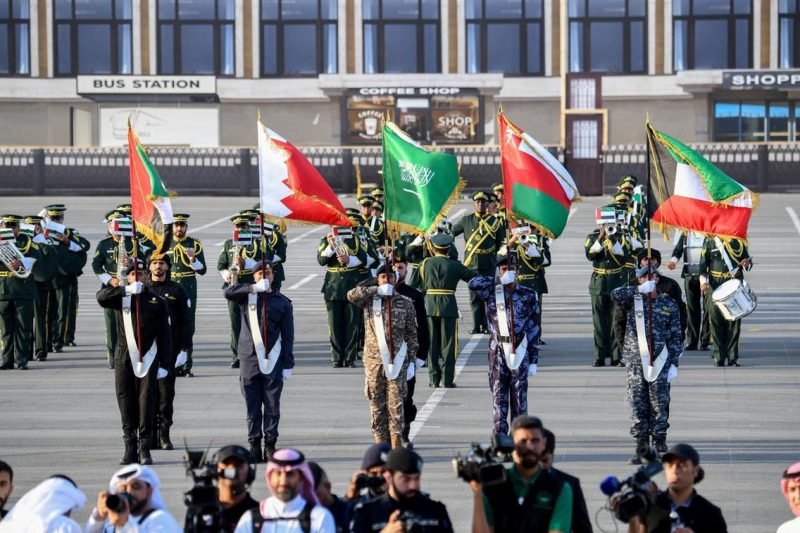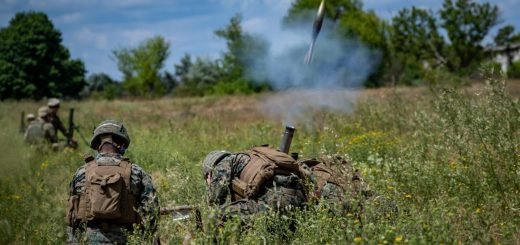GCC and security in the Middle East: More misses than hits

Though the GCC charter does not explicitly spell out cooperation on security as an objective and the GCC states themselves highlighted the social, economic and cultural aspects of their relations, it was obvious that the threats posed by Iran which sought to export its 1979 revolution to other countries of the region and by Iraq that promoted its brand of Arab nationalism, had precipitated the establishment of the organisation in 1981. The six conservative monarchies were status quoist powers that wanted to check the spread of these rivalling ideologies and ensure stability in the region. However, cooperation on the security front has been inconsistent, with the countries uniting in the face of a visible common threat and failing to cooperate when the threat perception is low.
The intervention of foreign powers
The GCC states had always relied on an external security provider in the region. Until 1971, Bahrain, Qatar, Oman and the UAE were in a state of semi dependence on Britain, with the latter taking care of their defence and foreign policies. The prospect of increased American intervention in the region post the 1979 Soviet Invasion of Afghanistan and the 1979 Iran revolution that deposed the US-backed Shah, made most states wary and aware of the need to coordinate their security among themselves. This sentiment was subtly expressed in the official briefings released following GCC’s founding.
The Iran Iraq war of 1980 had been initially viewed with relief by the GCC as both the ambitious powers were fighting with and causing damage to each other, leaving the other countries in the region alone. But this soon gave way for concern at the gains made by Iran. The GCC tried to make communication between the two sides possible in the hope of achieving peace but to no avail. They later lobbied successfully to pass a UN resolution apportioning more blame to the Iranian side but this failed to put an end to the conflict just like the resolutions that preceded it.
As the war raged on, it inflicted damage to the oil production and export facilities of the other countries, prompting even Kuwait who had advocated a neutral position towards the West, to seek American flagging of its vessels so that they would not be attacked. British, Italian and French navies also joined the US in the region as international shipping routes were threatened. The GCC states along with the Islamic Conference Organisation (ICO) were instrumental in persuading the UN Security Council members to agree on a resolution leading to a ceasefire and a visit by the Secretary-General.
The Iraqi invasion of Kuwait took the GCC states by surprise while the US and its European allies were quick to intervene according to UN resolution 678. The decision to keep the defence initiatives low key so as to not invite the hostility of major powers was regretted then but the organisation had no other option but to express gratitude to the world powers for helping Kuwait resist the Iraqi annexation. Eventually, the GCC states grew comfortable with the American and British presence and intervention that still continues to a certain extent, in spite of talks of disengagement. This has rendered the framing of their own coherent defence strategy unnecessary, if not impossible for the GCC states.

Intra GCC squabbles and organisational flaws
The GCC had taken some initiatives in order to further cooperation on security, like the formation of the Peninsular Shield Force (PSF) that boasts of 40,000 plus strength, joint military exercises, the enunciation of a collective defence policy promising mutual cooperation in the event of external aggression and various counterterrorism agreements in response to the rise of Al Qaeda in the peninsula. The PSF was deployed in defence of Kuwait during the 1990 Iraqi invasion and in order to quell the 2011 pro-democracy protests in Bahrain. However, the 2006 proposal to make the PSF a decentralized force with a centralized command instead of the single unit it is now, never came into fruition mainly due to fear of Saudi dominance over the other GCC states that would lead to the loss of their sovereignty.
The GCC does not have the structure necessary to ensure that all its members abide by the decisions taken at an organisational level or the capability to persuade its neighbours to adopt courses of action favourable to it. This was evident in the failure of its mediation efforts in a number of regional conflicts including the Israel Palestine issue with regard to which Riyadh had put forward the Fahd Plan in 1981 and the Arab Peace Initiative in 2002.
There have been a number of disputes within the GCC, mainly pertaining to state borders. Owing to age-old tribal affiliations, the countries find it difficult to support any one side strongly or to pursue anything beyond a gentle push towards conciliation, leaving it to external powers like Egypt that once helped Doha and Riyadh solve a boundary dispute and international institutions like the International Court of Justice (ICJ). Perhaps the most notable example of this kind is the Hawar islands dispute between Bahrain and Qatar resolved by the ICJ in 2001.
However, the worst crisis within the GCC occurred in 2017 when 12 countries including Saudi Arabia, Bahrain and UAE severed diplomatic ties and imposed economic blockades on Qatar for its support of Iran backed proxies and the political Islamist party Muslim Brotherhood that spearheaded the Arab Spring protests in several parts of the world. The move did not have the expected effect on Qatar as Iran and Turkey came to its rescue and the US’s support for the move turned lukewarm after a while. The organisation has been informally cleft into three, with Saudi and UAE being strictly anti Qatar and the remaining members trying to adopt moderate positions. This has encouraged the members to prefer bilateral agreements and initiatives to the multilateralism of the organisation and the divergence between the foreign policy goals of Riyadh and Doha has hampered effective intervention in the Syrian civil war.

Intervention in Yemen
The former Yemeni President Abdrabbuh Mansur Hadi’s call for help against Iran backed Houthis who had captured the significant government buildings in Sana’a including the Presidential Palace, invited a Saudi led military intervention which also had all the GCC states except Qatar as participants. The fight proved to be protracted with no end in sight, not the least because of the complex nature of the crisis that involves actors like Al Qaeda and the separatists demanding the secession of South Yemen. The GCC had effectively intervened to remove Ali Abdullah Saleh who had ruled Yemen since its unification in 1990 and initiated the National Dialogue Conference that aimed at engaging with all stakeholders while drafting the new constitution. The initiative, in spite of its laudable objectives, failed due to the lack of representation of secessionists, the liberties and discretions granted to Hadi which alienated the Houthis and the inability of constituencies like women and young people to forge solidarity.
Possibility of larger initiatives
While talking about the Middle East as a region, the GCC represents a subregion alone, leaving out countries like Egypt, Iran, Iraq, Lebanon and Turkey. A multilateral security initiative that includes some of these countries in addition to the other stakeholders like the US, China, Russia, European Union, India and Japan was considered, particularly in light of the thawing of relations between the US and Iran that led to the signing of the nuclear agreement. The American withdrawal from this agreement as well as the worsening relations between countries makes this possibility remote as of now even while Washington’s reconsideration of its security commitments in the region makes the development of such an initiative all the more relevant.



















